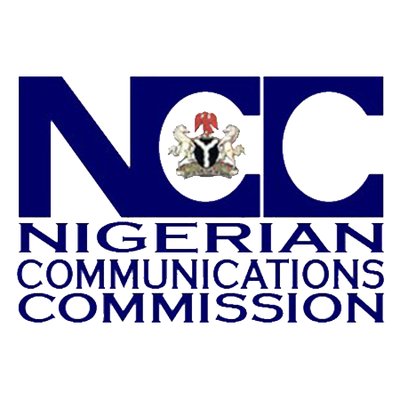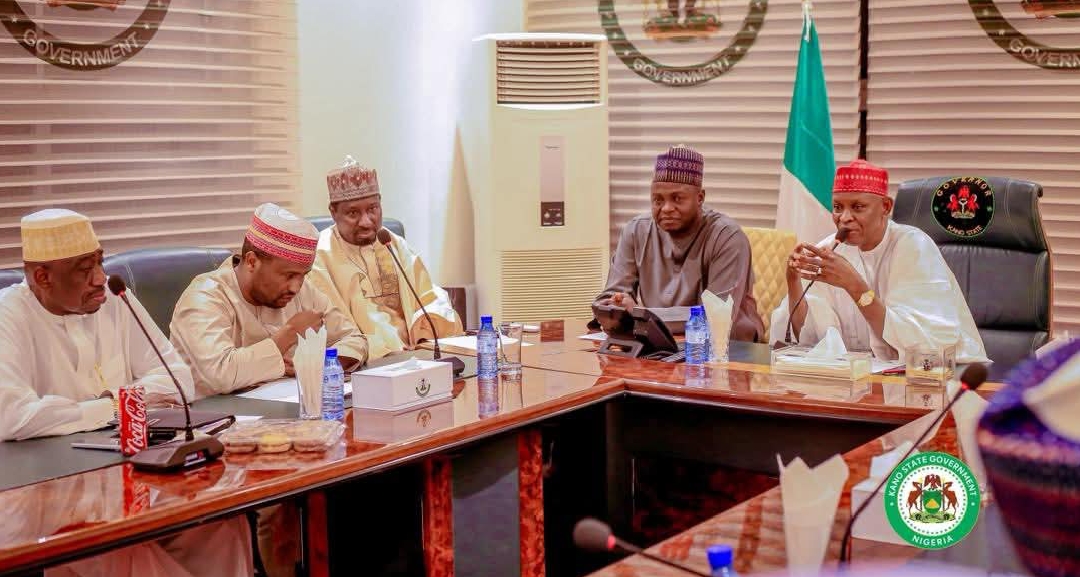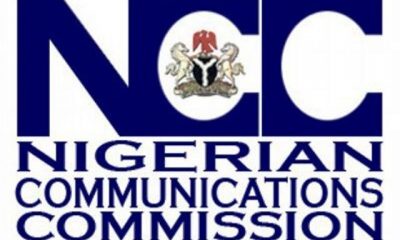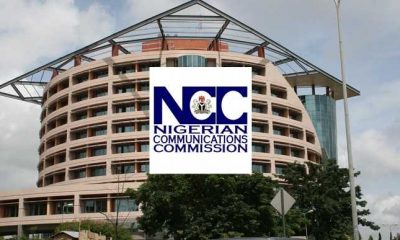Headlines
We have not issued any 5G licenses–NCC

Nasiru Yusuf
The Nigerian Communication Commission (NCC) has refuted a story widely circulated in social media that the telecommunications industry will switch on fifth generation (5G) in Lagos this week.
A statement sent to Kano Focus by Director, Public Affairs of the Commission Henry Nkemadu on Monday said there is no deployment of 5G in Nigeria at the moment.
“The attention of the Nigerian Communications Commission (NCC) has been drawn to a mischievous statement making the rounds on social media like Facebook, WhatsApp, Twitter, LinkedIn and other sites that the Nigerian telecoms industry is going to switch on Fifth Generation (5G) in Lagos this Sunday 10th, Monday 11th or Tuesday 12th May 2020.
“The statement from the faceless individuals or groups cannot be further from the truth. The Commission has unequivocally stated that there is no deployment of 5G in Nigeria at the moment,” Mr Nkemadu said.

It may be recalled that, the NCC back in November 2019 approved trial test for 5G for a period of three (3) months and the trial has been concluded and installation decommissioned.
The Executive Vice Chairman of the commission Prof. Umar Garba Dambatta, said that ‘’the trial among others was to study and observe any health or security challenges the 5G network might present. Relevant stakeholders including members of the security agencies were invited to participate during the trial.’’
He said the NCC will continue to maintain its policy of technology neutrality and will continue to encourage service providers to deploy the best technology that will meet the needs of the society in a secured and friendly manner.
Mr Dambatta observed that, the NCC had provided clarifications through Frequently Asked Questions on 5G in view of the recent developments in which misleading materials with no proven evidence are being circulated to link CORONAVIRUS or COVID-19 with 5G technology and therefore refutes the claim that there will be switching on of 5G in Lagos in its entirety.
He added that, the Commission also provided clarifications on the laying of fibre optic cables within Lagos and other parts of the country to the effect that the laying of additional fibre optic cables is to strengthen the existing 3G and 4G infrastructure to provide robust and pervasive telecoms infrastructure to improve network performance.
According to Dambatta, 5G is a fifth generation of mobile technology, which is an improvement of today’s 4G technology with enhanced capabilities.
5G technology provides the platform for new and emerging technologies such as Internet of Things (IoT), Artificial Intelligence (AI) and Big Data to improve the way we live and work.
“NCC has not issued any licence for 5G in Nigeria and therefore, the mobile network operators (MNOs) cannot switch on such technology. NCC is technology-neutral.
“As such, we don’t license technology but assigns spectrum to operators for deployment of any service when allocated by National Frequency Management Council (NFMC).
‘’As the telecoms regulator, we enjoin Nigerians to get accurate information from us rather than relying on information emanating on social media by some individuals out of ignorance to misinform our people,” Dambatta said.

Headlines
APC chairman reaffirms 60/40 leadership formula during visit to Gov. Yusuf

Nasiru Yusuf Ibrahim
The National Chairman of the All Progressives Congress (APC), Prof. Nentawe Yilwatda, has reaffirmed the party’s 60/40 leadership-sharing formula between new defectors and existing members in Kano State.

KANO FOCUS reports that Prof Yilwatda made the declaration during a courtesy visit to the Governor of Kano State, Abba Kabir Yusuf, where he expressed satisfaction with what he described as an impressive turnout of party supporters and leaders.
The development was disclosed in a statement issued on Monday by the Governor’s spokesperson, Sunusi Bature Dawakin Tofa.
According to the APC National Chairman, the 60/40 arrangement was designed to promote inclusiveness, unity, and effective participation of all stakeholders in party affairs and governance activities.
He said he was deeply impressed by the large number of party faithful who attended the meeting, noting that the turnout reflected a high level of enthusiasm, unity, and commitment among APC members in Kano State.
Yilwatda added that the strong gathering was a positive signal that would further strengthen support for President Bola Tinubu and boost his prospects in the forthcoming general elections.
He also commended Alhaji Yusuf Gawuna and Deputy Senate President, Barau Jibrin, for setting aside personal ambitions and aligning with the Governor’s vision for the party in Kano.
The APC Chairman further praised former Kano State Governor and ex-APC National Chairman, Abdullahi Umar Ganduje, for his leadership and contributions to the party’s growth and cohesion in the state.
In his response, Governor Yusuf thanked the APC leadership for the visit and for their continued support toward unity and peace in Kano State.
He reaffirmed his commitment to working collaboratively with party members to ensure that the state remains united and prosperous, in alignment with the Renewed Hope Agenda of President Tinubu.
Governor Yusuf noted that the strong turnout and show of solidarity demonstrated that APC members in Kano are ready to work together for the progress of the party and the overall development of the state.

Headlines
Ex-FRSC officer calls for relocation of Singer Market after recurrent fires

Bosede Olufemi
A retired Assistant Corps Marshal of the Federal Road Safety Corps (FRSC), Alhaji Kabiru Yusuf-Nadabo, has called for the relocation of Singer Market in Kano to the Dangwaro International Market following repeated fire incidents at the facility.
KANO FOCUS reports that Yusuf-Nadabo, who is also a chieftain of the All Progressives Congress (APC) from Jigawa State, made the call in an interview with the News Agency of Nigeria (NAN) in Kano on Monday.

He said the relocation had become necessary to address persistent fire outbreaks that have plagued the market over the past 15 years.
According to him, he was at the scene of the latest fire incident on February 14 from 4 p.m. to 8 a.m., where he observed serious challenges in accessing the area during rescue operations.
“It took about 12 hours to put out the fire. The current location of the market is not conducive for heavy-duty and articulated vehicles, posing serious safety risks,” he said.
He noted that the market’s environment makes it difficult for articulated vehicles and fire service trucks to move freely, especially during emergencies.
Yusuf-Nadabo added that nearly 100 trucks enter the market daily to offload goods, contributing to congestion. He said major adjoining roads, including Bello Road and Ibrahim Taiwo Road, are often blocked, compounding traffic problems and hindering emergency response.
“Based on my experience in traffic management and public safety, relocating the market to Dangwaro International Market will significantly reduce congestion and help put an end to recurring fire outbreaks,” he stated.
The retired FRSC officer urged the Kano State Government to act urgently in the interest of public safety and sustainable urban development.
Meanwhile, KANO FOCUS reports that the recent fire destroyed goods and property worth over ₦5 billion, affecting more than 1,000 businesses and leaving seven persons missing.
The Chairman of the market, Alhaji Junaid Zakari, disclosed the extent of the damage to NAN in Kano on Sunday.
Singer Market has witnessed several fire outbreaks in recent years. A massive blaze occurred at the market on February 2, 2026, affecting numerous shops before firefighters and emergency agencies brought it under control, with no reported loss of lives.
In November 2025, a dawn fire razed 44 shops, while in March 2023, over 100 shops were destroyed. Similarly, in November 2022, a warehouse and goods worth over ₦100 million were consumed by fire.

Headlines
Tinubu sympathises with Kano Traders, orders probe into Singer Market fire

Nasiru Yusuf Ibrahim
President Bola Tinubu has sympathised with traders and residents of Kano State following the devastating fire outbreak at Singer Market over the weekend.

KANO FOCUS reports that the fire, which reportedly started on Saturday evening and raged into Sunday morning, caused extensive damage to the popular food market, leaving many traders counting heavy losses.
In a statement issued on Sunday by his Special Adviser on Information and Strategy, Bayo Onanuga, the President described the incident as tragic and deeply concerning.
According to the statement, President Tinubu had earlier contacted the Governor of Kano State, Abba Kabir Yusuf, to obtain a situation report on the extent of the damage and ongoing response efforts.
The President expressed particular concern that the latest fire occurred less than two weeks after another inferno destroyed dozens of shops and properties at the same market.
He consequently directed that a comprehensive investigation be carried out to determine the causes of the recurring fires, which have repeatedly left traders in distress.
President Tinubu assured the affected traders of the Federal Government’s concern and emphasised the need for preventive measures to avert future occurrences.






















